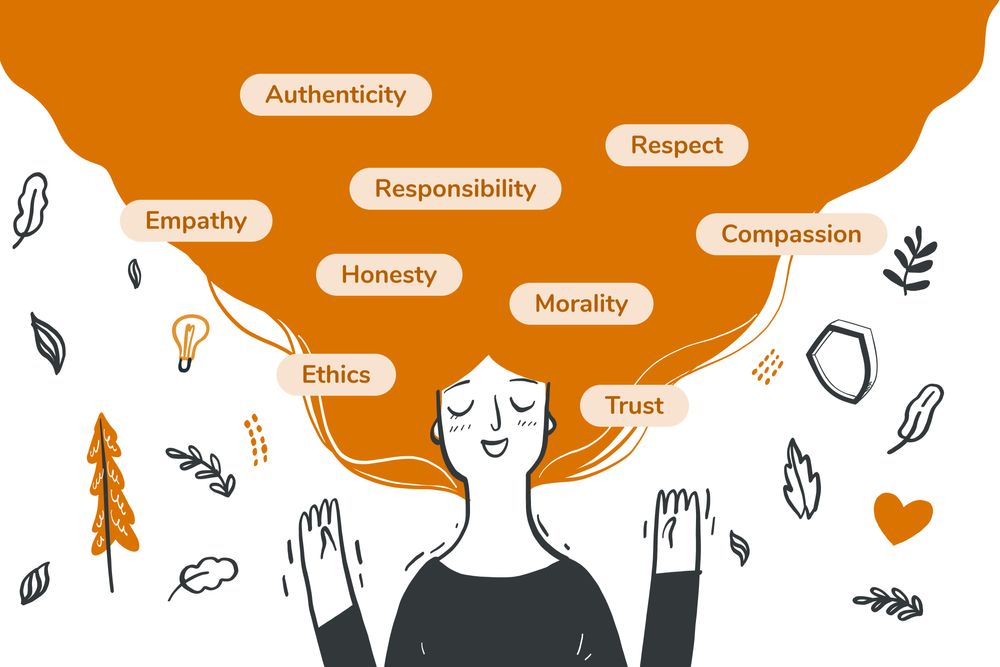How Values and Culture in Engineering Drive Organizational Success
We strive for a values-driven software engineering culture. That means our product development approach places a strong emphasis on innovative problem-solving, integrity, dedication to our customers, and collaborative efforts.
When a values-driven engineering culture is prioritized, we're able to make a lot of great things happen. As a whole, wellbeing, engagement, and Developer Experience improve, and that becomes essential when building technology.
Drawing on my 20+ years of experience developing software and managing engineers, this article presents a collection of engineering values that I find essential. They are intended to grow teams and companies and help managers, tech leads, and software developers be better within their domains every day.
Trust and Openness in Engineering Teams
At our small but cozy software company, we aim to create a harmonious balance between trust and openness. Almost always these values take center stage, creating a work environment where ideas are not only shared but acted upon.
Openness isn’t only about the free exchange of ideas and collaboration. It is, in essence, a vehicle for innovation and progressive development within engineering teams.
Trust is where we expect the best from each other, give each other the benefit of the doubt, and motivate one another to embark on a journey of continuous self and organizational improvement. Trust shouldn’t be taken for granted; it requires work as if it’s constructed, maintained, and sometimes, restored. It’s present in the honest and integrity-filled actions, the straightforwardness of conversations, and the authentic intent behind every decision and action.
With trust and openness coming together, we’re reminded of how we collaborate remotely, of how we run our 1:1 meetings, standups, and performance reviews. It’s where the selection of tools and projects isn’t mandated but decided on collectively.
These accomplishments, however, have not come easily, as we’re constantly making decisions and enhancing processes within our organization. We aim to make trust and openness the foundation upon which every project is built.
Continuous Improvement
In every line of code we write, we draw on our experience and knowledge. But we’re constantly looking to embrace new learnings and find new ways of solving old problems.
This ethos embodies what it means to improve continuously. It’s a value that is a part of us, and which enables us to elevate existing processes and traditions.
Our commitment to learning doesn’t merely benefit us; it's a pledge to enhance both ourselves and our engineering communities. Our environment thrives on perpetual absorption and sharing, whether it unfolds casually beside the coffee machine or during our Tech or Lightning Talks.
Our continuous improvement isn't only a practice; it's a shared journey towards collective and individual advancement in our engineering pursuits.
Quality in Code
Every engineering organization wants its technology to have an impact. With us, that begins with making enjoyable, useful software for its users, and which is easy to maintain for developers in the client’s environment. We hate technical debt, as many devs do. Quality also goes beyond operational functionality.
We aspire to elevate the user environment and the processes that surround it. It's not only about debugging and sending off our solutions into the digital universe but also exploring how we can enhance security, accessibility, and privacy. Building quality software is more than clean code and agile methodologies. It’s ensuring that every digital interaction echoes our commitment to quality.
Autonomy in Building Technology
When it comes to internal policies and procedures, the one-size-fits-all approach almost always falls short. That’s because every dev team consists of a unique blend of individuals, personalities, and work habits. It’s the EM who needs to figure out how to navigate such a dynamic. The strategy for us has always been empowerment through autonomy.
Engineering managers can empower their dev teams by inspiring confidence during testing, introducing more automation into the CI/CD pipeline, or making internal processes easier to navigate to preserve valuable time.
Development teams often want to advance through projects as quickly as possible. However, deployment frequently encounters obstacles. Minimizing manual verifications is crucial to mitigating manual debt, as is striking a balance between what upper management wants and complete developer autonomy. For instance, while engineering managers might suggest new tools and libraries, it's imperative to continually welcome feedback to discern the most effective solutions.
Consistent communication and feedback are pivotal in identifying and eliminating any barriers to efficiency and productivity. By fostering a work environment that is both agile and efficient, leaders enable their engineering teams to zero in on their work, subsequently amplifying their impact on the business value.
Fulfillment in Every Line of Code
Every algorithm and every digital solution we create has to be a rewarding experience for our engineers, not only professionally but personally. That sense of achievement encourages us to uphold our core set of values and create a vision that ties in with the organization’s.
People also want to feel as if their work matters and their skill is being put to good use - a sense of purpose. In most cases, it’s not even a high salary, but to use their favorite tools to build cool technology that people will love.
The other factor is to have a nurturing supportive environment that promotes wellbeing and happiness. Your devs might be responsible for embodying core values and forging strong relationships, but it’s the engineering manager who needs to create an environment where developers can be their best selves every day.
To foster an engaged and inclusive workforce, establish a clear vision, align roles with the company's values and purpose, and appreciate those who cultivate positive relationships.
Conclusion
Having a values-driven engineering culture is a crucial factor in the success of any organization. Cultivating an environment that puts trust, openness, self-improvement, independence, and quality helps developers be better coders and individuals every day.





